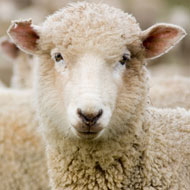High fluke risk forecasted for parts of UK

Farmers are advised to check the fluke forecast for their area.
Parts of the UK are facing higher risk of liver fluke this autumn, according to the latest parasite forecast from SCOPS.
Met Office reports show rainfall was relatively low over the winter of 2016-17. However, parts of Scotland, Wales, North and South-West England saw higher than normal rainfall in June/July this year.
Rainfall was lower in August but there is a greater risk of fluke in these areas owing to wetter than average weather earlier in the summer.
The NADIS forecast predicts a high risk of fluke infection in western Scotland and South Wales this autumn. Meanwhile there is potential for medium risk in eastern Scotland, North-West England, South-West England and North Wales.
Elsewhere, in the central and eastern regions of England, there is currently thought to be a low risk. However, the forecast may change depending on rainfall in September and October.
Acute fluke in sheep was confirmed in Cheshire last month, while positive results were also reported from lambs in South West Scotland, and from Parasite Waatch farms in South West England and South West Wales.
Farmers are advised to check the fluke forecast for their area and discuss testing or treatment options with their vet, in addition to quarantine protocols for new or returning animals.
Sudden deaths in sheep should be investigated and it is advisable to reduce fluke risk through management where possible. For example, removing sheep or cattle from the wettest fields or housing early.



 The Federation of Independent Veterinary Practices (FIVP) has announced a third season of its podcast, Practice Matters.
The Federation of Independent Veterinary Practices (FIVP) has announced a third season of its podcast, Practice Matters.